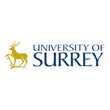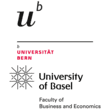-
- PhD Program, Program, Postgraduate Scholarship
- Posted 16 hours ago
7 fully-funded PhD positions in Economics, Analytics and Decision Sciences (EADS) at the IMT School for Advanced Studies
Starts 1 Nov at IMT School for Advanced Studies Lucca in Lucca, Italie
-
- Programme de Maîtrise
- Posted 17 hours ago
Master’s in Economics with Data Science
at University of Alicante in Alicante, Espagne
-
- Programme de Maîtrise
- Posted 5 days ago
Masters in Economics, Finance and Sustainability
at University of Venice, Ca' Foscari in Venice, Italie
-
- Programme de Doctorat
- Posted 1 week ago
PhD in Economics
Starts 1 Oct at CERGE-EI in Prague, Czechia
-
- Programme de Doctorat
- Posted 1 week ago
PhD in Economics
Starts 1 Sep at CEMFI in Madrid, Espagne
-
- Programme de MBA
- (Online)
- Posted 1 week ago
Master of Business Administration with a concentration in Finance online
at Murray State University
-
- Programme de Doctorat
- Posted 1 week ago
Ph.D. in Finance, fully funded
at Leibniz Institute for Financial Research SAFE in Frankfurt am Main, Allemagne
-
- Programme de Maîtrise
- Posted 1 week ago
Master in Economic Research
Starts 1 Oct at CERGE-EI in Prague, Czechia
-
- Programme de Doctorat
- Posted 1 week ago
PhD in Economics and Finance, University of Verona, Italy (six positions available)
Starts 1 Oct at Department of Economics, University of Verona in Verona, Italie
-
- Programme de Maîtrise
- Posted 1 week ago
Master in Economics and Finance (MEF)
Starts 1 Oct at Institute of Economic Studies - Charles University in Prague, Czechia
-
- Programme de Maîtrise
- Posted 2 weeks ago
Master in Economics and Finance
Starts 1 Sep at CEMFI in Madrid, Espagne
-
- Programme de Maîtrise
- Posted 2 weeks ago
Master in Statistics, Data Intelligence, and the Foundations of the Sciences
Starts 15 Sep at Università Politecnica delle Marche in Ancona, Italie
-
- Programme de Doctorat
- Posted 2 weeks ago
Call for GSSI PhD Applications 2025/26
Starts 1 Nov at GSSI - Gran Sasso Science Institute in L'Aquila, Italie en it
-
- Programme de Maîtrise
- Posted 3 weeks ago
MSc Environmental and Natural Resource Economics
Starts 1 Sep at Durham University Business School in Durham, Royaume-Uni
-
- Programme de Doctorat
- Posted 3 weeks ago
PhD in Economics at Ca' Foscari University of Venice
at University of Venice, Ca' Foscari in Venice, Italie -
- Programme de Maîtrise
- Posted 3 weeks ago
MSc Behavioural Economics
Starts 1 Sep at Durham University Business School in Durham, Royaume-Uni
-
- Programme de Maîtrise
- Posted 3 weeks ago
MSc Economics
Starts 1 Sep at Durham University Business School in Durham, Royaume-Uni
-
- PhD Program, Program, PhD Candidate Job
- Posted 3 weeks ago
Doctoral programme in Economics and Finance -Call for applications for 2025/2026 entry 9 Fully - funded PhD Scholarships
At Department of Economics and Management, University of Trento in Trento, Italie
-
- Programme de Maîtrise
- Posted 1 month ago
Master in Economics - Barcelona
Starts 22 Sep at UB School of Economics, University of Barcelona in Barcelona, Espagne
-
- Programme de Maîtrise
- Posted 1 month ago
Master of Science in Applied Economics
at University of Neuchâtel in Neuchâtel, Suisse
-
- Programme de Maîtrise
- Posted 1 month ago
Master's programme in Quantitative Economics and Finance (MiQE/F)
Starts 31 Aug at University of St.Gallen in Sankt Gallen, Suisse -
- Programme de Maîtrise
- Posted 2 weeks ago
Master in Economics, University of Udine
at University of Udine in Udine, Italie -
- Programme de Type Bachelor
- Posted 1 month ago
ECONOMICS AND POLITICAL SCIENCE (EPS)
at Università degli Studi di Milano in Milan, Italie
-
- Programme de Doctorat
- Posted 1 month ago
Doctoral programme in Economics (MRes+PhD)
Starts 1 Oct at Economics, University of Surrey in Guildford, Royaume-Uni
-
- Programme de Maîtrise
- Posted 1 month ago
Master in International and Monetary Economics (MIME) - Joint Program by the Universities of Basel and Bern
Starts 1 Aug at Faculty of Business and Economics at the University of Basel and University of Bern - Department of Economics in Basel, Suisse
Pagination















